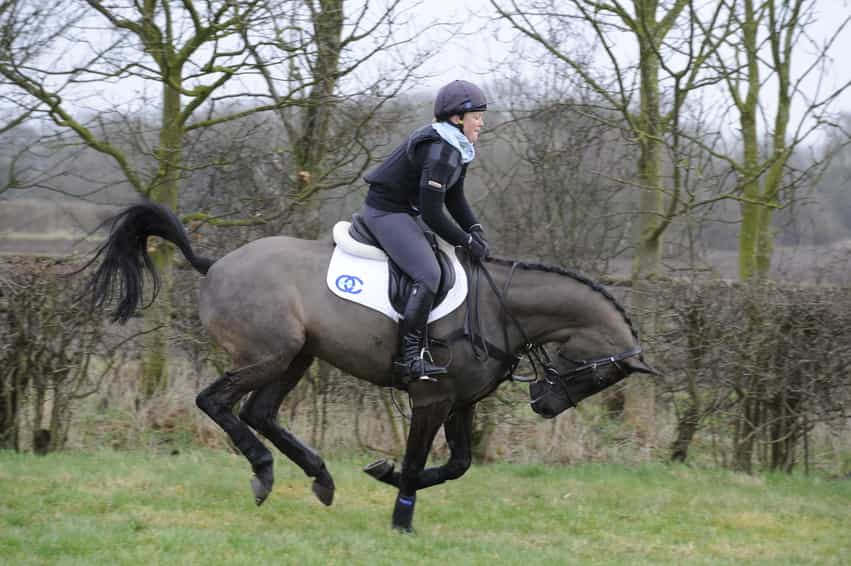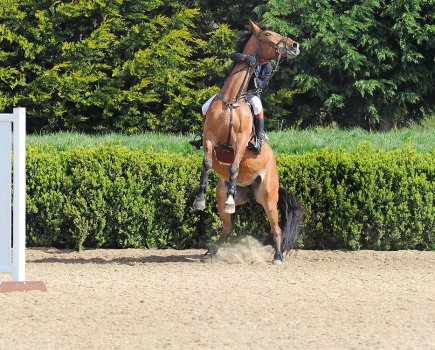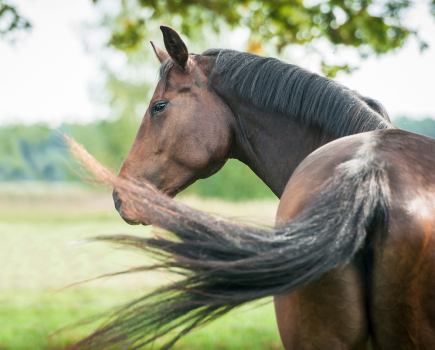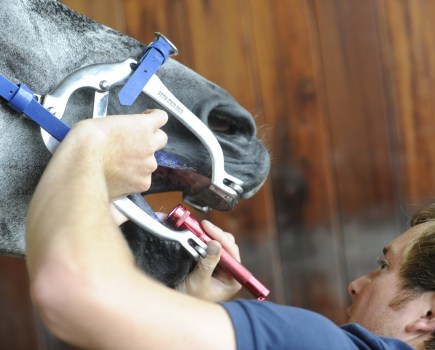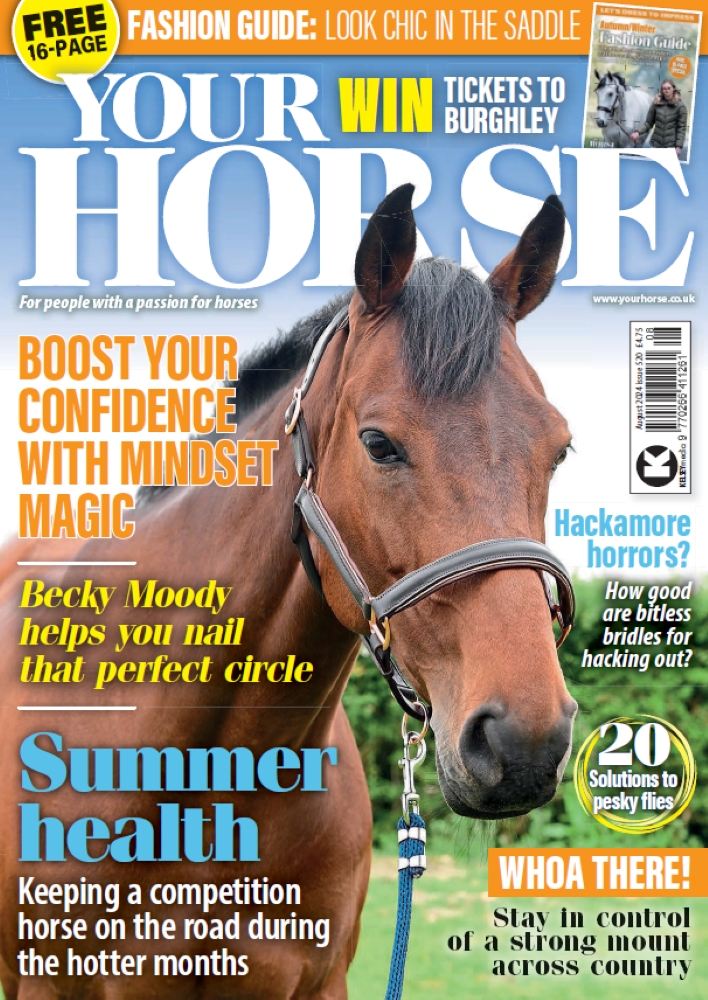Has your horse recently started bucking in canter or have they always bucked but it’s something you’ve never given much thought to? There can be many reasons why horses buck and relevant actions that can be taken to address this behaviour, but any potential health concerns should be explored as a priority.
In this article, equine behaviour consultant, Justine Harrison, and trainer, Jason Webb, share their insights into two common instances where bucking takes place, in canter transitions and when your horse feels excited. Read on to find out more.
Bucking to canter
If your horse bucks when you ask for canter, it could be a sign that something’s not quite right. Here, Justine advises a reader whose horse bucks when asked to canter. The horse in question has already had his teeth and saddle checked, but the bucking is still a problem.
Justine says:
Getting to the root cause of why horses buck when ridden can be tricky. There could be a number of reasons – he may have an undiagnosed physical problem, he might have learned to do this when he was backed, or he could be anticipating pain or discomfort from a previously ill-fitting saddle or unbalanced rider.
I’d recommend you stop riding. There’s a risk that this behaviour could escalate and he could become more dangerous.
Ask your vet to give him a thorough physical check-up. Explain to the vet exactly what he’s doing, so that they can assess where any potential problem may be.
For example, does he buck when you give a specific leg aid into canter? Or does it happen when your balance is shifted in the saddle?
If the vet gives him the all clear, you’ll need to carefully retrain his canter transition. I’d recommend asking a qualified behaviourist to help you with this as the retraining process needs to be approached sympathetically and systematically.
Take it slowly – I’d start by retraining his canter on the lunge and getting good transitions to a voice command before a rider gets back on.
How to calm a bucking horse
When a horse bucks in excitement it can be tricky and nerve-wracking to cope with, Here, Jason helps a reader who asks: ‘How should I deal with excited bucking when riding in company, as it can be quite frustrating? Disengaging the hind end works beautifully to calm the event, but I’d like further advice on then getting him to go calmly forwards please. I don’t want him to set off any of the others.’
Jason says:
Disengaging is great for dealing with these problems when they happen, but to prevent them you need to teach your horse to cope with higher energy levels. If you are not doing enough work with you horse, then that is a starting point. Generally, the most reliable horses get plenty of exercise including a good canter every day, whether it’s in the field with their mates, under saddle or on the lunge. We all know what can happen to with horses on box rest!
If it is just the fact that this happens when you are in company, you need to practice doing exercises in company. Going to clinics is always good because there are other horses around, but there is structure including high energy work and then waiting around.
I run camps and particularly on the three-day camps, by the third day all the horses are much better behaved in that environment. This isn’t just because they have got used to working with other horses, it’s because they have been practicing coming up in energy levels and back down again. This in my view is the most important part of creating a calm and level horse in different situations.

